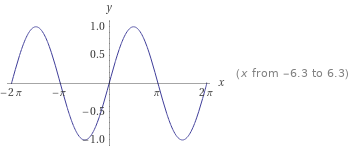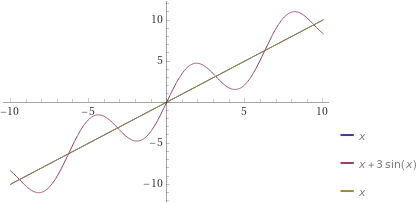Dearest Friends,
It’s time to take you to my no-no place.
The Three No’s:
1. No Culture By Steam
2. No Politics By Memes
3. No Fulfillment of the Dream
No Culture By Steam
In a near-off past, fools dreamed of a world-computer that could compute all the correct decisions men would make. It is the dream of every technocrat. This is the government-by-steam, a contraption to rule men. But men are not automatons, so to make the government-by-steam, you must have men-by-steam. Are we to be clockwork men, machine men, ruled by our Heart Machine in the hideous underdark? Will we submit fully to Moloch? But that’s a normative judgement. I will go farther – government-by-steam is impossible, precisely because of *normative judgements*. To have government-by-steam presumes that man is, like a rock or a machine, governed by purely physical laws. But it is not so. We make choices because we have free will, and what drives our choices is some idea of the good, or The Good, which is the Holy Spirit. It attempts to collapse human subjectivity into objectivity – our thoughts are merely the collisions of atoms, and therefore the universe could be predicted from the first state if we had a complete Theory of Everything.
And what is Culture-by-Steam? Merely the same thing. It presumes memetics is governed by purely physical laws, rather than being a thing of Man and therefore Manmade in a contingent way. The laws of culture are not like the laws of physics. What a perfect theory of memetics would give us is a prediction of what *sort of thing* might thrive in an environment, but not the shape of that thing in particular, contingent reality. To wit: Objectivism and Orthodox Marxism are, dialectically, the same ideology. Ayn Rand and Karl Marx are the same kind of person, NEET-Prophets of the Industrial Future, which now is the Industrial Past. Both of these ideologies are ideologies of High Modernism. Both of them exalt the productive over the idle, the machine over the plantation, because both exist in and are reactions to the age of the machine. And yet it’s clear that Objectivism is not Orthodox Marxism. What material conditions create are cultural ecological niches. But though different animals across different continents convergently evolve similar shapes to meet similar environments, they are not *the same animal*. The mistake of Culture-by-Steam is to imagine these laws are deterministic, that they dictate a path rather than laying out a set of possibilities that conform to the material pressures of the time.
You must forgive me for being shallow and pedantic, but I feel the need to spell it out, even though it should be obvious now what the role of the artist from the above. Obviously, if a path is contingent, what moves it? Happenstance events and the choices of *men*. And what men here? I am a little slow, so I have to work it out, but it seems clear that it is artists. This is why DALL-E et al cannot replace the artist, because the artist is not creating bulk art, but is envisioning an aesthetic and *translating* their aesthetic into something which can be perceived. An aesthetic is an imagined future, an imagined possible, a statement of an ideal. So the act of art is an act of vision, of perceiving the transcendental values of a given age. What the artist tries to capture in a scene of a battle is not the battle, but what the battle represents: Valor. To do otherwise is like the bulk landscapes of hotel rooms… kitsch. The material conditions create the ecological niche, they create a certain moment. But the artist’s goal is to draw out the essence of the moment and render it.
It is clear to any man of passing intellect why RW Artist Twitter is wrong then. But, again, I have to work out my gut assertions sometimes, because my brain is a little lacking. Imagination is not action. Words are not deeds. By being men of imagination, the artist divorces himself from the real. So too does the intellectual and the propagandist. What matters is no longer the real, but the words around the real. They are charting the map and not the territory. They are guiding imaginations, which set out a distant horizon, but to get to that horizon, you must steer the ship.
What is the revolutionary’s task? The revolutionary is the one who sees changing material conditions and re-adapts our present state to conform to God’s will. We are evolved for a more or less feudal structure, and feudalism is the natural form power takes, but material conditions killed Feudalism 1.0. We are designed to live in certain ways, but modernity and technical progress alienates us from our nature. The job of the revolutionary is to reattach ourselves to our nature and God’s plan for us, given that things are so unlike the natural state of things.
He sees the ideal of community, but he does not resurrect the old village commune and other obsolete things. He is not one who retreats from the world, but one who confronts it. He is not a reactionary, he does not react. He is the one who dictates. From Alexander to Caesar, from Washington to Lincoln to FDR, from Napoleon to Lenin, the revolutionary is the World Spirit on horseback, the one who cuts the Gordian Knot of an age’s contradictions, and leads it to a new settlement.
The Revolutionary rules by the Divine Right of Kings, for a Revolutionary, in truth, is the natural King. Just as there is always a natural aristocracy, there is also a natural King, the man who is the master of the age.
No Politics by Memes
What does this imply? The ruling class, the real elites, are not primarily men of words, but first and foremost, men of action. And what is action? Action is something that must exist in the world of the real. The artist is a man of visions and imaginations. But the king is a man of property and a leader of men. The artist dreams of Valor, but Darius dreams of cows, and frets about the trade routes for wool merchants. This may seem snarky, but it’s not. High ideals are not the place of princes. The prince is on the ready line at all times. I sneer at those who talk about being natural aristocrats because they are natural idlers. The prince sleeps on the ground and eats beans with his men. He must bleed blood for blood, and clash iron against iron.
Above all, the prince must be rooted. The thing about ideals is that ideals are impossible. You can measure how idealistic a person is by looking at how much they sacrifice for their ideals. It’s easy to say you’re honest because you always tell the truth when it benefits you. But that doesn’t make you honest at all. An ideal is held true when it costs something. A true idealist is not a sunshine soldier. And so with art. The best artist must understand best their subject. But because their subject is an Ideal, a Vision, an Aesthetic, it unroots them from reality. The artist does not swim in reality. Originally, we came up with symbols to depict and describe reality. Then people learned those symbols absent experience with those realities. Eventually, those symbols take on a life of their own, becoming hyperreality, an image reflecting reality run amok, taking on a life of its own. Bill Gates is real, the media depiction of The Billionaire is a symbol, and the 50 Shades of Gray Billionaire Romance Novel Character or The Cabal is hyperreality, that media depiction coming to life. Symbols have become detached from their referents. But if we go by the symbols without referents, we are only combining together these memes without concern for reality, what they originally described. Ridiculous constructions like Ancap Marxist-Bidenist or Hoxhaist Appalachian or Barbie Girl Nationalism are products of this sea of symbols without referents. Rather than evolving from pressures in the material world, describing material reality, they come about from the conflict of these symbols with each other, and the contradictions and tensions present within the symbols. People pick up these labels not to propose some policies or change things for their loved ones, but to own other people online who exist in the sea of symbols.
Zealots are the most extreme idealists, because they will actually shed blood for their ideals. But most men are not idealists, let alone zealots. That is why politics is driven by material concerns or status (which is our lizard brain approximation of material conditions that will lead to us mating). Men will not die to meme, but they will die to protect their material concerns. Men have died to protect their property, men have died to protect their class, and most of all, men die to protect their people and their family. In doing serious politics, we must start from serious concerns rooted in the real world.
For these reasons, Lenin said we must focus on praxis. And a man with praxis but no theory is a better king than a man with theory and no praxis. Why do ordinary soldiers and ordinary businessmen make better kings than a reedy intellectual? Because their lives have forced them to confront the real at every turn, and therefore they know reality by her shape and feel, even if they aren’t capable of intellectualizing. A king is an executive, and certain pursuits demonstrate, by necessity, executive capacity.
No Fulfillment of the Dream
The Left always wins, I say from my Soviet dacha. I mean, uhhh, my star fort. Long live Louis XIV! My free love commune.
Oh, none of those things lasted?
The thing about the eschaton is that you can’t immatenize it. The Left always wins, but every particular Left fails to accomplish its goals, because its goals are the imaginations of an artist, and what must exist in reality is some manifestation that can be real. Therefore, the utopias of every particular Left will fail, and in time, the Left of a time becomes the Right, in some sense.
All these different aesthetics and visions are arbitrary vectors in an impossibly complex multi-dimensional space, but we can’t actually reach the infinite end of the proposed vector. The mission of our civilization is always beckoning us forward, but at the end of forward is always collapse, as the contradictions of the idea pile up and undo it.
Fully Automated Space Luxury Gay Communism is no more the end of history than Fukuyama’s ramblings or Louis XIV’s absolutism. The main difference, I suppose, is that the Left that was Absolutism had less delusions about its own impossible megalomanias. There is no end of history. Rather, history is a record of contingent events in sequence, and dialectics is a process of continuous cyclical adjustment. It is like the roundabout approach of prices towards equilibrium, even though equilibrium never comes. Nevertheless, it is approached. It is the process by which the sine wave moves around the changing line such as to continuously approximate the best response for a given set of material conditions. Part of why every great modern leader gets an “-ism” is because that is what a leader must do. A leader must divorce from the impossible demands of the artists and their symbols without referents and enact practical solutions to practical problems. Paradise never comes, so it behooves us to take care of ourselves in the world as it is.
Monday’s here. Get back to work.
No country for bold men,
Monsieur le Baron

